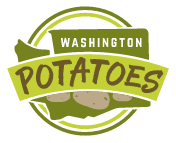“DIRTY DOZEN” LIST DESCREDITED BY GOVERNMENT DATA AND STUDIES
Before passing on a healthy fruit or vegetable because it made the Environmental Working Group’s (EWG) “Dirty Dozen” list, take time to read peer reviewed research and government data discrediting the methodology of the list. This year’s “Dirty Dozen” list was released on March 20, 2024 and included: strawberries, spinach, kale, collard, mustard greens, grapes, peaches, pears, nectarines, apples, bell peppers, hot peppers, cherries, blueberries, and green beans.
Peer Reviewed Research in the Journal of Toxicology: Published peer review research found that the authors of the “Dirty Dozen” list adhere no scientifically established methodology in the annual development of their list. The recommendation of EWG to substitute organic produce options for items on the list doesn’t decrease the risk of exposure to residues as produce grown conventionally residues are so low if present at all.
Environmental Protection Agency (EPA): EPA evaluates all new and existing pesticides to ensure with reasonably certainty that no harm comes to humans as a result of pesticide residues on food. Safety standards that apply to pesticide residue on food are continually reviewed and improved. The EPA also points out that the authors of the list do not assess risk or apply basic tenets of toxicology.
Centers for Disease Control (CDC) Report: According to a CDC report, one in ten Americans consume the daily allowance of fruits and vegetables. Amazingly, this number has remained unchanged in surveys spanning almost a decade. Plus, those living below the poverty level were the least likely to meet recommendations.
The Food and Drug Administration (FDA) determines that using tap water to rinse fruits and vegetables will often remove or eliminate any present residue but advised to never use soap in this process.
For more produce safety information visit www.safefruitsandveggies.com.
